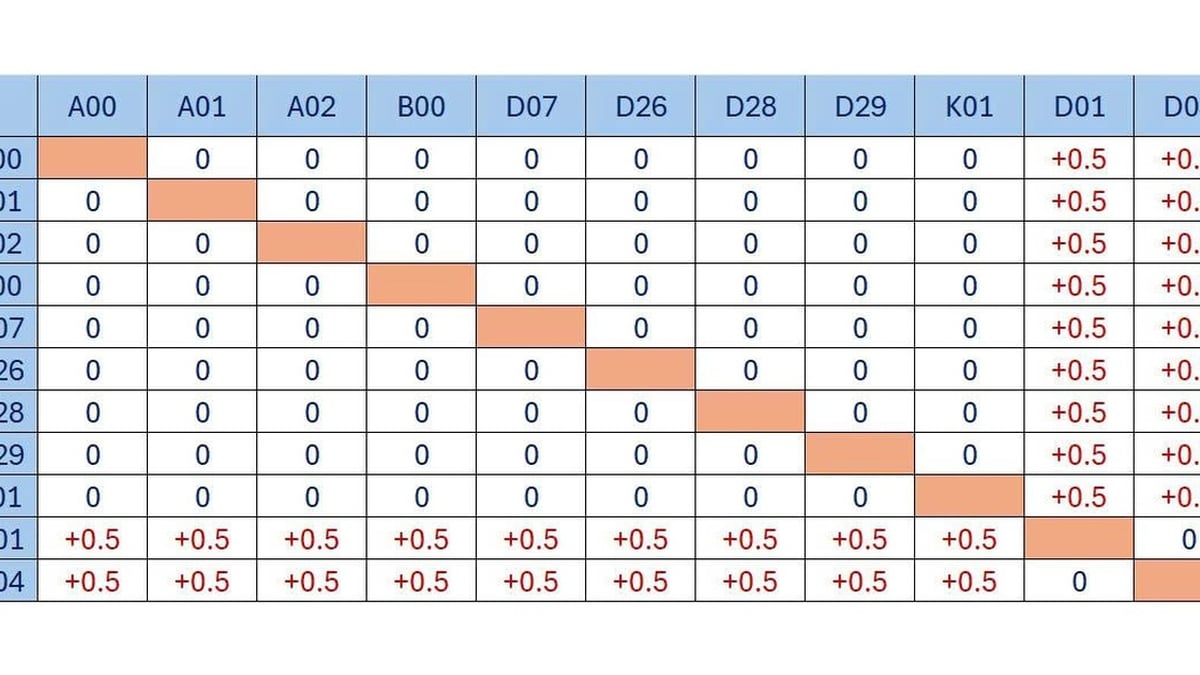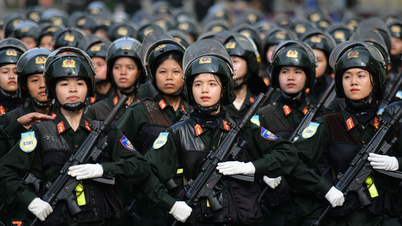Flattery seems harmless and pleasant to the ear, but in fact it is incredibly dangerous because it leads to loss of awareness, confusion by virtual values, and thus leading to wrong choices and wrong decisions.
An agency or organization corrupted by flattery will degenerate, lose the trust of cadres, party members and people, and cannot perform its functions and tasks well.
Since appearing on earth, in order to survive and develop, humans have always had to perceive the world around them correctly with the desire to find the truth. Because only when perceiving correctly, can humans behave and influence the world around them correctly and most effectively. However, the path to finding the truth is not easy. With the nature of liking to listen to sweet talk, liking to hear sweet words, not liking unpleasant words, humans are easily seduced and deluded by virtual values, illusions about themselves, and from there have wrong behaviors. In public agencies, the leader's perspective is often covered by the cunning words and actions of flatterers and liars.
World history records the name of the sycophant Ho Than in the Qing Dynasty in China who was corrupt and monopolized the whole country. In the history of our nation, many great celebrities such as Chu Van An, Nguyen Trai, Nguyen Binh Khiem, Le Quy Don... all advised the king and lord to severely punish sycophants. Because reality shows that sycophants are treacherous officials. In the book "Reforming the way of working", President Ho Chi Minh strongly condemned the disease of "sycophancy, flattery", and "praising" superiors. He warned: Having that disease will corrupt cadres and affect the common cause. From then on, he taught cadres and party members: "We must be clear-headed to avoid being surrounded by sycophants and staying away from good cadres".

Illustration / tuyengiao.vn
The dangers and consequences of flattery are frightening, but we have not yet fully recognized and fought against it in a truly resolute manner. The problem is that this manifestation does not violate the law, and there are no quantitative sanctions, but if it persists in the organization, it is very dangerous.
On March 13, in Hanoi, chairing the meeting of the 14th Party Congress Personnel Subcommittee, General Secretary Nguyen Phu Trong, Head of the Subcommittee, emphasized: Do not allow into the 14th Central Executive Committee those who show signs of political opportunism, ambition for power, flattery, lobbying, corruption, bureaucracy, localism, lobbying for personal, factional, and group interests; lack of political views, do not defend what is right, do not fight what is wrong. “We must take all measures to resolutely not put into leadership positions those who are unworthy, unqualified, especially those who have made mistakes or have degraded qualities and ethics, are involved in corruption, lobbying for positions and power, are arrogant, patriarchal, flatter superiors, bully subordinates, cover up criminals, cause disunity, and negatively affect the Party's reputation. Allowing those people to enter leadership positions is a disaster for the Party, creating conditions for them to harm the country and people even more,” the General Secretary stated.
Reality shows that, if the agency leader is fond of flattery, he will gradually lose sight of the true nature of the work, the true nature of the agency, the true capacity and ethics of the staff under his authority, and even the true nature of himself. An agency or organization that allows flattery to prevail will no longer have straightforward opinions, no longer have correct advice, but everyone will only listen to the leader, follow the leader's will, regardless of whether it is reasonable or unreasonable, right or wrong. That is also the manifestation of "seeing the right but not protecting, seeing the wrong but not fighting".
Flattery is a bad trait and tactic, one of the manifestations of individualism and opportunism. Although flattery is not defined as a criminal act and has no legal sanctions, flattery often accompanies other illegal acts such as bribery and corruption.
Because there are flatterers, there are flatterers. Flatters are easily favored, respected, promoted, promoted, given raises, and rewarded. Flatters and flatterers are easily linked together to form interest groups, corruption, and negativity. Flatters will use any means as long as they achieve their goals, often spending a lot of money on bribes, not sparing praise, and "praising" flatterers.
It is easy to recognize the signs of a flatterer. First is the attitude of flattery, pleasing superiors at all costs, considering every word the leader says as the truth, praising the leader in all situations, all circumstances, both in front of and behind the back so that the superior thinks: He or she is a good person, a confidant, straightforward, consistent.
Even all the habits and hobbies of the leader are carefully studied, taken care of, and praised by the flatterer: "brave" tennis playing, "miraculous" golf playing, "killer" fishing, "exquisite" antique playing... and then served with fine wine, high-quality cigars, and endless parties... Everything about the leader's family will be taken care of attentively and wholeheartedly, from death anniversaries, New Year's to happy occasions, illnesses, and anniversaries... In particular, the leader's relatives will be pampered to the fullest extent so that the flatterer can please the boss and relatives.
Both flatterers and flatterers destroy their own personalities, corrupt social morality, harm good people, cause disunity within agencies and organizations, and cause corruption, negativity, and favoritism. Leaders who flatter and are authoritarian, and whose criticism and self-criticism are ineffective, are among the reasons leading to the paralysis of party organizations. One day, flattering leaders will "fall into trouble" when they get deeply involved in financial relationships and especially some secret, improper relationships with flatterers, and will have to "go through with it", being controlled by the person who flattered them and by evil forces.
When flatterers are promoted, they will cause many harmful effects. Firstly, because they lack talent and virtue, flatterers advance mainly by bribing and bribery, so when they are promoted, they often seek to make money, extort, and commit corruption to make up for the costs they have "invested" without thinking much about the common good. Secondly, the nature of flattery is deceit, so flatterers are never honest, always "lie to superiors, deceive subordinates", "flatter superiors, bully subordinates". And thus will damage the public apparatus. Thirdly, when flatterers hold power, they will only choose other flatterers and corrupt people, in the style of "birds of a feather flock together", forming interest groups, making the public service environment in agencies and organizations unhealthy.
Therefore, identifying and taking effective measures to prevent flattery in agencies and organizations is an urgent issue today. To do that, it is necessary to pay attention to the following contents: First, cadres and party members need to continue to promote studying and following Ho Chi Minh's ideology, morality and style, and fight against all manifestations of individualism, including flattery. Second, party committees at all levels, authorities at all levels and agencies and units doing personnel work must resolutely fight against flattery; do not arrange or promote flattering and flattering cadres. Although it is difficult to handle flattery by legal regulations, it can be regulated by public ethics and Party regulations.
Third, fight against flattery by doing a good job of criticism and self-criticism, and using public opinion to strongly condemn this evil. Party organizations, governments, unions, mass organizations, press, literature and art... need to have a strong and direct voice against manifestations of flattery. Fourth, the most important solution is the correct behavior of leaders and managers. The virtue and talent of leaders are not only expressed in the management of units and agencies, but especially in personnel work, they must have a discerning eye, clearly see between right and wrong, and must quickly detect flatterers to prevent and eliminate them. Absolutely avoid falling into the trap of flatterers. And never promote flatterers. A good leader is someone who knows how to promote collective strength, values implementing democratic regulations in the agency, uses the eyes and ears of the masses in the unit, and public opinion to consult, consider, and evaluate people, and cannot look one-sidedly with his personal feelings in personnel work.
In short, there must be a solution to prevent flattery from becoming a style, an effective method to promote incompetent and unethical officials and a catalyst for corruption and negativity.
Ta Ngoc (According to qdnd.vn)
Source






















































































![[Infographic] In 2025, 47 products will achieve national OCOP](https://vphoto.vietnam.vn/thumb/402x226/vietnam/resource/IMAGE/2025/7/16/5d672398b0744db3ab920e05db8e5b7d)














Comment (0)